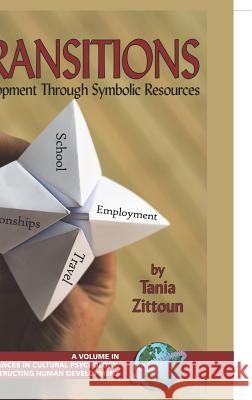Transitions: Symbolic Resources in Development (Hc) » książka
Transitions: Symbolic Resources in Development (Hc)
ISBN-13: 9781593112271 / Angielski / Twarda / 2006 / 264 str.
What do young people do with the novels they read, the films they see, the music they hear and sing? How do these cultural products act as 'symbolic resources' in the process of development? And what can we, as researchers, learn by studying people's uses of fiction? This monograph approaches development through the study of transitions and the processes of exploration that follow ruptures in people's lives. Specifically, it examines young people's symbolic responsibility as they have to choose among the wide range of cultural products societies exposes them to. The book thus examines the books, films and music that young people mobilize when they need to redefine their identity, learn informal know-how, or have to confer meaning to what happens to them in transitions. The book has a theoretical scope. It draws on cultural psychology and psychoanalysis to formulate the importance of semiotic mediation in thinking, feeling and acting. Its main contribution is to propose a model for analyzing uses of symbolic resources, such as books and films, in everyday life. It thus shows how uses of symbolic resources can enable new forms of experiences and conduct. It finally highlights social and personal conditions that might facilitate or hinder developmental uses of symbolic resources. The book, based on in-depth case studies, is addressed to scholars, professional and students in the fields of youth, culture and the media, cultural and developmental psychology, and life-long education.











